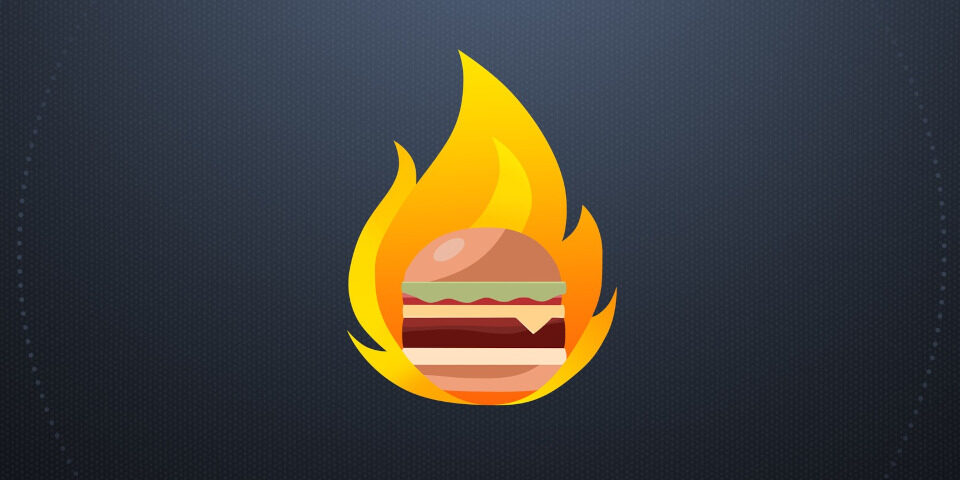Theory Accelerated releases Axiom 3.2 for Houdini
Originally posted on 28 October 2022. Scroll down for news of the Axiom 3.2 update.
Theory Accelerated – aka former Naughty Dog TD Matt Puchala – has updated Axiom, his GPU-accelerated sparse volumetric fluid solver for simulating effects like smoke and fire in Houdini.
Axiom 3.0 focuses on simulation performance, adding native support for CUDA and Metal, native Arm support for Apple Silicon Macs, and new options to reduce simulation time and memory usage.
A faster alternative to Houdini’s spare Pyro solver for look development
First released in 2020, Axiom is a GPU-accelerated sparse volumetric fluid solver, intended as a faster alternative to Houdini’s Sparse Pyro solver for look dev work.
Like its native counterpart, Axiom provides near-real-time viewport feedback on complex fire and smoke sims, but is GPU-accelerated via OpenCL, falling back on the CPU if a simulation exceeds GPU memory.
It has been used on game cinematics by Riot Games and Valve, and in VFX by Muse VFX.
Native support for Metal, Apple Silicon and CUDA
Axiom 3.0 expands the range of APIs the software supports – and by extension, the range of hardware on which it is natively GPU-accelerated.
Mac users get native Metal support – introduced in beta in Axiom 2.2, and now production-ready – along with native support for Arm processors for new Apple Silicon Macs.
Windows and Linux users get native CUDA support, which should improve performance on Nvidia GPUs.
Improvements to simulation performance and memory usage
In addition, there are a number of architectural changes intended to improve simulation performance, with the release notes describing the solver as “from 8-32% faster overall”.
Specific changes include the option to increase the size of the neighbour tile cache, speeding up advection operations, particularly for fast-moving simulations like explosions.
It is also now possible to reduce the memory footprint of simulations with “little or no difference” in visual quality by switching from the old default 32-bit-precision simulation grids to 16-bit-precision grids.
The solver can now use system memory as well as GPU memory when running under Metal or CUDA, improving the performance of larger simulations that can’t fit into GPU memory.
Better handling of simulation source shapes, plus new velocity drag force
Axiom 3.0 also updates handling of simulation source shapes, with sources now inheriting the orientation of an input mesh as well as its size; and simulation values now being composited when source shapes overlap.
Source shapes also now have viewport handles, making it easier to adjust their size and position.
The release also adds a new velocity drag force for slowing down simulations, and makes it possible to use up to three disturbance and turbulence forces in a single simulation.

Updated 23 May 2023: Theory Accelerated has released Axiom 3.1.
It’s primarily a performance update, particularly for Mac users, with simulation now “5-25% faster” when using either Metal or OpenCL on macOS; and better stability when retiming simulations.
However, there are a number of new features, including a new Fast Perlin noise type, which is roughly 5x faster than the standard Perlin noise, at the cost of a smaller range of controls.

Updated 27 January 2024: Theory Accelerated has released Axiom 3.2.
Again, it’s mainly a performance update, with the solver “10-20% faster overall”, and further benefits for users with “very high-end” GPUs from NVIDIA’s GeForce RTX 30 and 40 Series.
New features include the option to use arbitrary fields to drive control ramps on forces, and to change the maximum number of advection trace steps from the default value.
In addition, it is now possible to write VDBs from subframes in a simulation; and writing out VDBs is now “20% faster overall”.
Pricing and system requirements
Axiom 3.2 is compatible with Houdini 19.0+ running on Windows, Linux or macOS.
Commercial node-locked licences now cost $199, down $200 since the release of Axiom 2.2, while floating licences, which used to cost $499, are now priced on demand.
The software can also be used free in trial mode with Houdini Apprentice; the Indie edition, which is compatible only with Houdini Indie, costs $99.
Read a full list of new features in Axiom 3 in the online documentation
